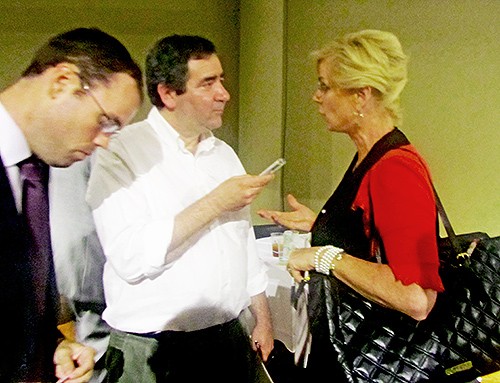As was true of the rest of Memphis in the aftermath of the horrific mob beating of three random victims in the parking lot of Poplar Plaza Saturday night, members of the newly constituted Shelby County Commission were clearly preoccupied with the subject and made it one of the first main matters of discussion on Monday.
Toward the end of the meeting, Republican Mark Billingsley, who represents Germantown, raised the issue: “We need a discussion of public safety,” he said, and that became the basis for a spirited discussion in which the ominous import of the mob violence at a key Poplar corridor crossroads was acknowledged around the board.
Billingsley pointed out the impact of the event on suburban points east and the likelihood of even further fissures in a longstanding city/suburban divide that had been stretched to the breaking point by years of bitter disagreement over the school merger issue. Fellow Republican Terry Roland, who hails from Millington, said, “Crime doesn’t have borders,” and he was seconded on the point by Democrat Reginald Milton. Heidi Shafer, another GOP member, pointed out that the outrage at Poplar Plaza — a follow-up to a previous one that occurred there the weekend before — took place at a popular shopping venue within a residential area that was thickly populated with representatives of local government, Democratic and Republican, black and white.
“We have to have a little bit of muscle,” she said, and it was finally agreed that the commission would seek a meeting with county Mayor Mark Luttrell, Sheriff Bill Oldham, and — per the suggeston of Democrat Melvin Burgess — Gerald Darling, the chief of security at Shelby County Schools, along with perhaps other officials, to hammer out a response.
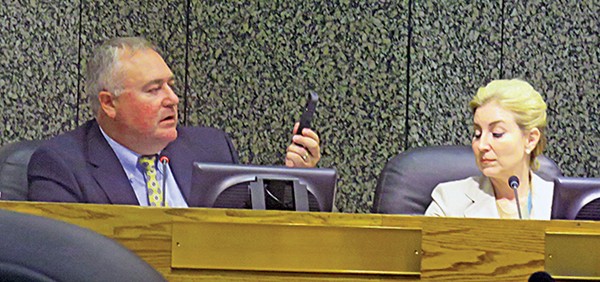 Jackson baker
Jackson baker
Commissioners Billingsley (left) and Shafer discussing the Poplar Plaza incident.
For an elective body known more for disagreement than concord, there was a striking sense of unanimity in the commission’s action — one reflective, no doubt, of attitudes in the community at large.
• It would seem that the former practice of commission members rotating their chairmanship back and forth between Republicans and Democrats is a thing of the past — and so is the value of a vice chairmanship in establishing the succession of chairs.
Justin Ford, a Democrat, was elected commission chair Monday for the commission year 2014-15, besting three other nominees, fellow Democrat Walter Bailey and Republicans Roland and Steve Basar. All were holdovers on the 13-member county legislative body, newly elected from 13 single-member districts.
Roland would end up with the consolation prize of the vice chairmanship — an office that, in times of yore, would have put him in the line of succession to the chairmanship, but hasn’t done so for the past several vice chairs, including Basar, who was last year’s vice chair (aka chairman pro tem).
It is true in a sense, as Republican Shafer said during the debate, that Ford’s election is a triumph for bipartisanship. No other Democratic member, with the possible exception of the now departed James Harvey, sided with Republicans as often during the previous commission session as did Ford.
But the real meaning of the outcome is that Democrats, whose current 7-6 majority on the commission is, if anything, likely to expand in years to come, are in control of the commission and its agenda whenever they can agree on something.
The chairmanship vote occurred early on in Monday’s meeting and was overseen by Ford, who in a prefigurement of sorts, was elected temporary chair by a single vote over Shafer.
The proceedings began with an interesting wrinkle, when, after the original four nominations were made from the 13 commissioners themselves, Ford allowed speeches of support from members of the audience. Roland won that straw vote hands down, with four testifiers to his virtue compared to one for Bailey.
But it was Bailey who would lead the pack through the first two ballots, garnering six votes and ending only a vote shy both times. His nearest competitor, early on, was Roland, who essentially split the GOP vote with Basar, getting as many as four votes until Shafer, toward the end of the second round, shifted her vote from Roland to Ford, who thereby survived into the third ballot when the field, according to commission rules regarding such matters, was pared down to a final twosome.
Shafer, who had championed Roland’s cause beforehand, would acknowledge later that her vote change was in recognition that a Bailey vs. Roland runoff would end in victory for the Democrat on a straight party-line vote, while Ford vs. Bailey would allow Republicans to influence the outcome.
And so it came to pass that Ford, with considerable backing from Republican members, prevailed by a single vote over the venerable Bailey, whose positions on issues are more likely to be fixed in longstanding Democratic doctrine.
• Another important decision was reached Monday — this one occurring in the evening, as the Shelby County Democratic Executive Committee met at the IBEW meeting hall on Madison to nominate a candidate for state Senate District 30 on the November 4th county ballot.
A vacancy was created last month when the longtime seat holder, Jim Kyle, was elected chancellor on August 7th and formally resigned on the 29th. Three candidates, all women, vied for the honor of the nomination, which, as state Attorney General Robert Cooper had ruled, had to be filled by a given political party’s governing committee.
In Shelby County, the relevant organizations were the Democrats’ executive committee and the Shelby County Republicans’ steering committee. Though District 30, which encompasses much of North Memphis, Frayser, and Raleigh, is heavily Democratic, it was the GOP that filled its place on the ballot first, having nominated physician/broadcast executive George Flinn as its nominee at a steering committee meeting last week.
Sensing all but certain victory in November, several Democrats considered throwing their hats in the ring, but in the end it was three of the party’s prominent women who vied for the nomination. They were Sara Kyle, wife of the former senator, and a former city judge and member of the state Regulatory Authority; Beverly Marrero, a former state senator who had lost a 2012 race to Jim Kyle in District 30; and Carol Chumney, a former state representative, city councilmember, and mayoral candidate.
Present for the occasion was state Democratic Chairman Roy Herron of Nashville, who delivered encouraging remarks before the committee’s vote, as did newly elected District 29 state Senator Lee Harris and former county commissioner and county mayoral candidate Steve Mulroy.
All three struck a note of harmony, as did the three candidates, who made brief speeches before the vote was taken. The only surprise came when Chumney announced that she was withdrawing and throwing her support to Marrero.
Kyle prevailed by a margin of 18-to-16, with only those committee members voting who represented districts encompassed by or within District 30.
For all the well-known schisms within local Democratic ranks, Monday night’s meeting had less contentiousness, at least on the surface, than the GOP equivalent.
On that occasion, which took place at Clark Tower last Thursday night, steering committee member John Niven had nominated Flinn, and Justin Joy, the Shelby County Republican chairman, had been about to call the nomination process over when Colonel Gene Billingsley, the party’s nominee for state House District 93, unexpectedly interjected, “Somebody nominate me!”
When no one responded, Billingsley, who has a well-deserved reputation in party circles as being eccentric and was at the meeting as a spectator, groused loudly, “What? A bunch of wimps?” Committee member Wayne West did point out, in an apparent attempt to settle down the interloper, that Billingsley already had a place on the November ballot.
More would be forthcoming, however, from the Colonel, who kept up something of a running commentary, even as Flinn, clearly a consensus choice, was addressing committee members, pledging his usual earnest (and no doubt well-financed, also as usual) electioneering effort and calling for their support.
As Flinn was finishing up with his remarks, Billingsley had one more taunt. “I’m not going to vote for you!” he yelled out. He seemed all by himself with that sentiment, however. Flinn received a hearty round of applause when Chairman Joy pronounced him the party’s nominee.
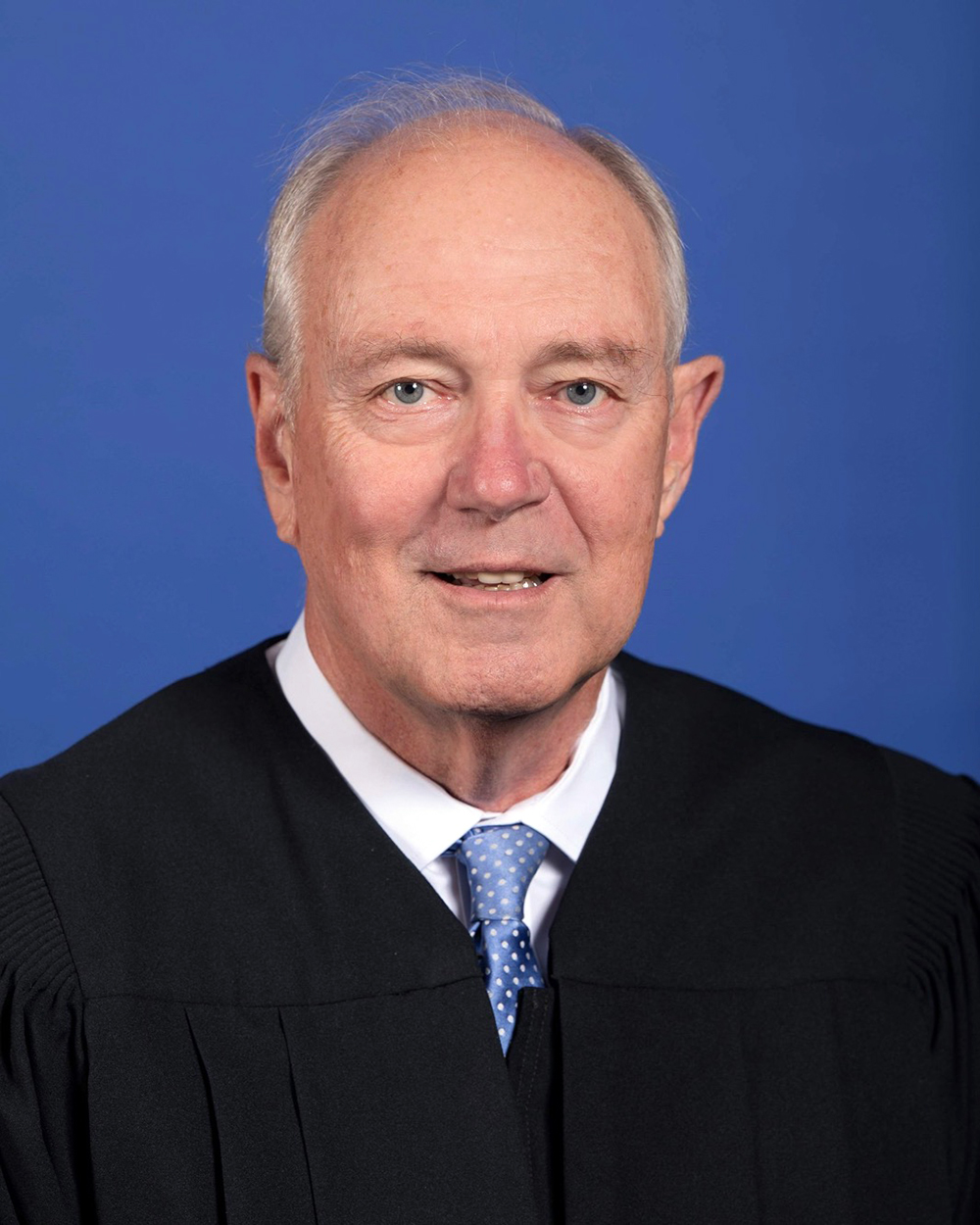
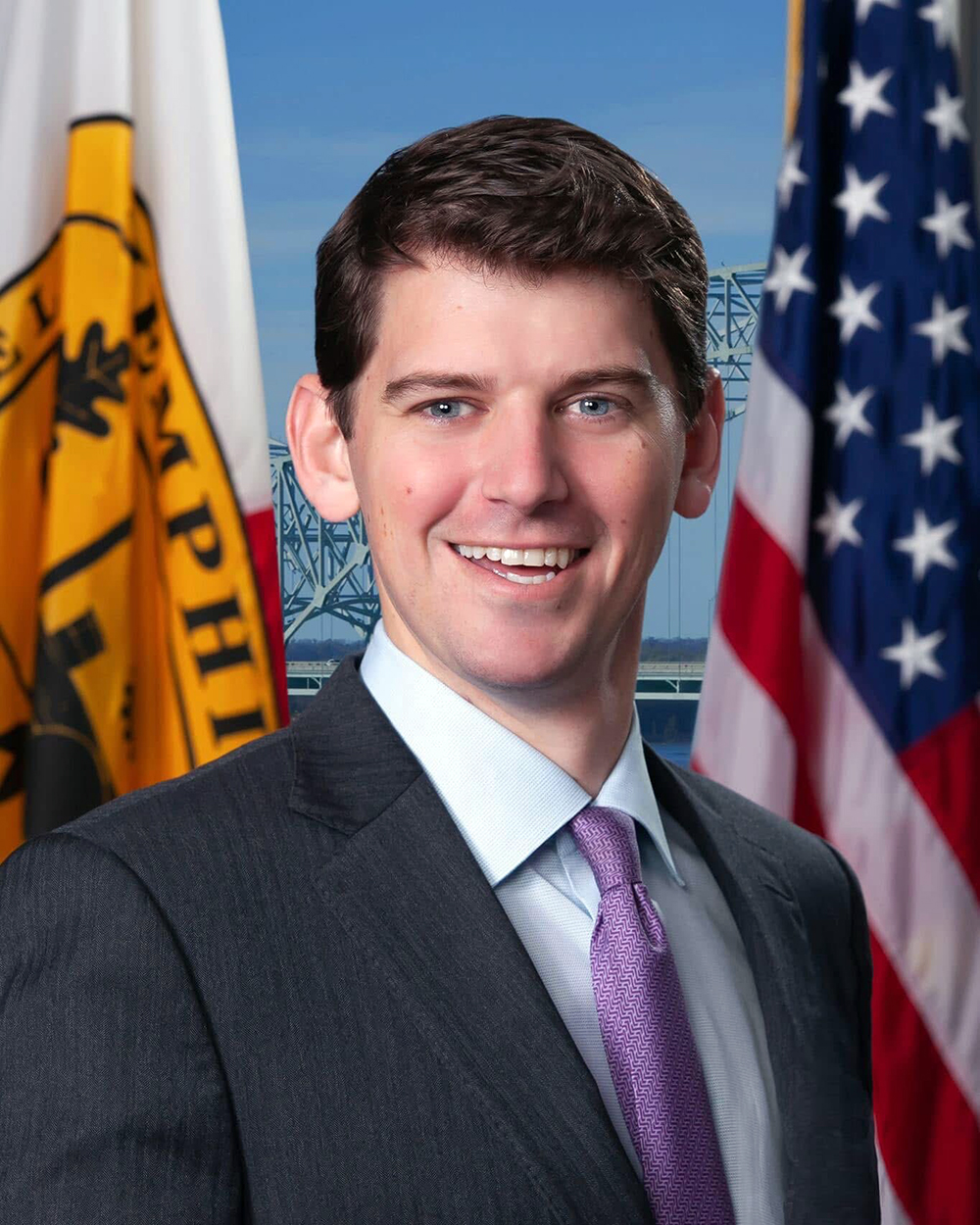
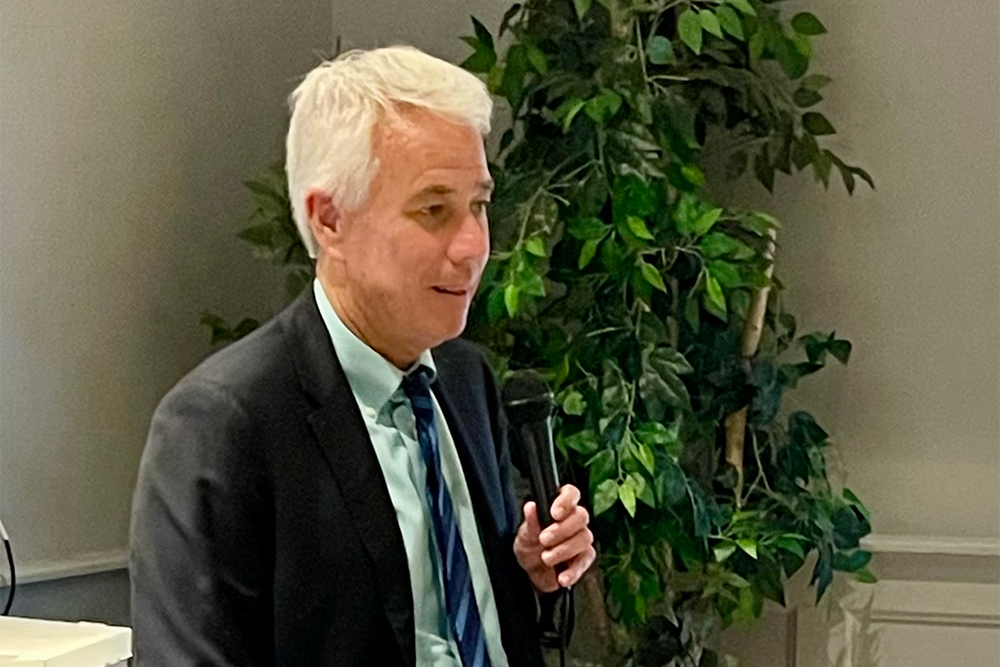


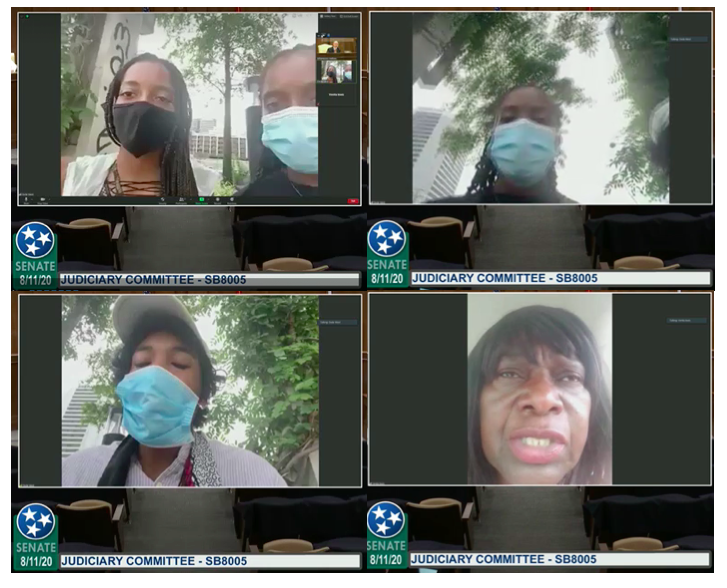 State of Tennessee
State of Tennessee  Jackson Baker
Jackson Baker 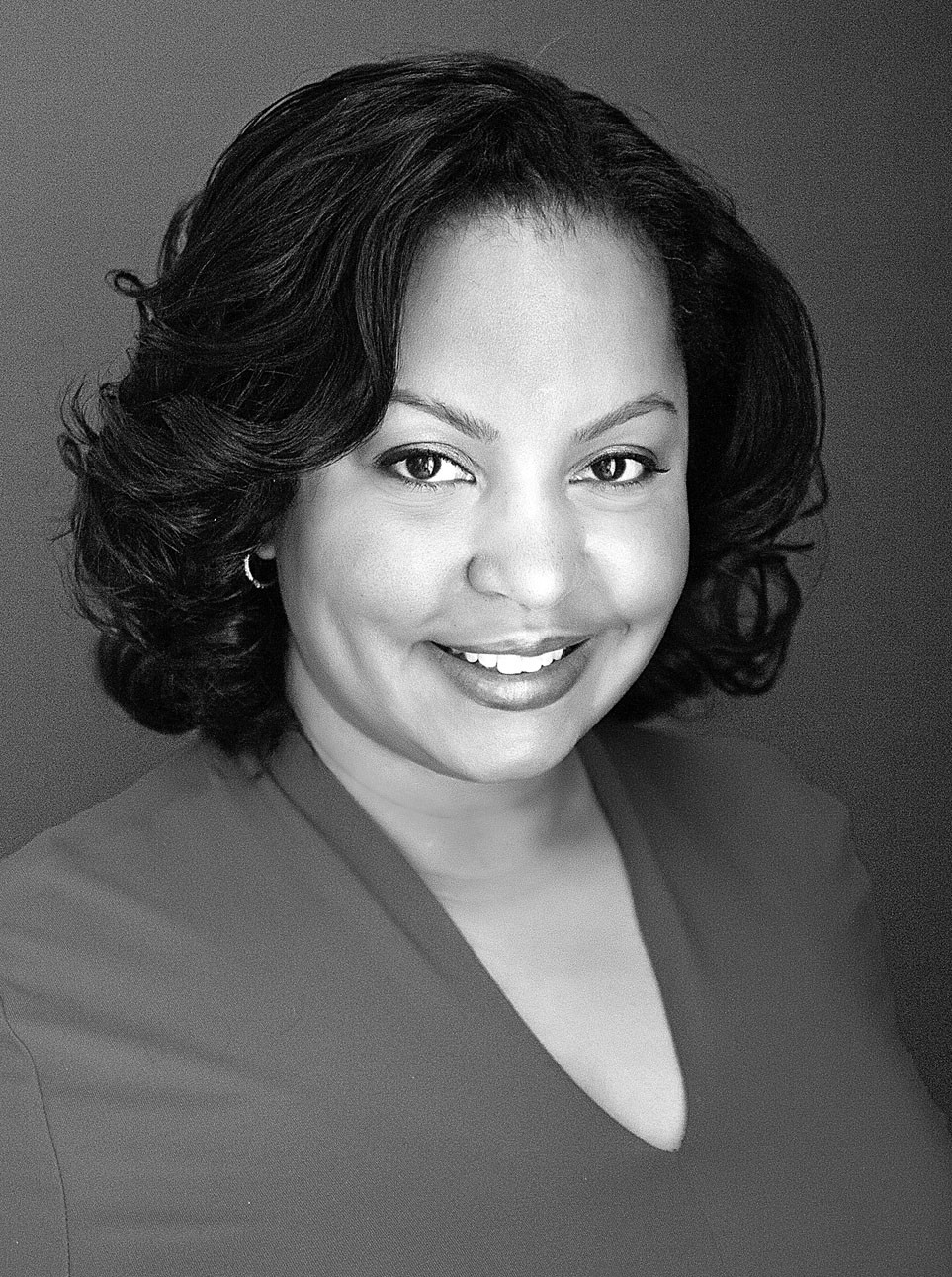
 Jackson baker
Jackson baker 